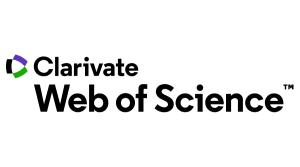Content Editing, Proofing & Publishing Solutions
حلول تحرير المحتوى والمراجعة والنشر في المجلات
An initiative by renowned scholars, authors and content creators from the world, committed to supporting scholars and professionals worldwide in achieving their content editing and journal publishing goals.
top Ranked
Journal Indexes
قمة
فهرس المجلات






Top Journal Indexes for Academic and Scientific Research
Selecting the right journal index is essential for researchers looking to enhance the visibility, credibility, and impact of their work. Journal indexes serve as databases that catalog reputable academic journals, ensuring high-quality peer-reviewed publications are easily discoverable by scholars, institutions, and funding agencies.
Below is a comprehensive list of the most recognized journal indexes across various disciplines.
1. Web of Science (WoS) – Clarivate Analytics
Overview: Managed by Clarivate Analytics, Web of Science is a multidisciplinary database that provides citation data for high-impact journals.
Features:
Covers 12,000+ journals across all disciplines.
Includes Science Citation Index Expanded (SCIE), Social Sciences Citation Index (SSCI), and Arts & Humanities Citation Index (AHCI).
Provides citation tracking, impact factor rankings, and research analytics.
Access: Subscription-based.
2. Scopus – Elsevier
Overview: One of the largest abstract and citation databases, covering a broad spectrum of disciplines.
Features:
Indexes over 41,000 titles from 5,000+ publishers.
Offers author profiles and citation analysis tools.
Provides journal impact metrics like CiteScore, SJR, and SNIP.
Access: Subscription-based.
3. Thomson Reuters Master Journal List
Overview: Thomson Reuters’ Master Journal List is a comprehensive directory of journals recognized across multiple academic disciplines.
Features:
Lists journals indexed in Web of Science, Scopus, and other major databases.
Helps researchers identify legitimate and reputable journals.
Regularly updated to include newly indexed publications.
Access: Free to browse.
4. Directory of Open Access Journals (DOAJ)
Overview: A community-curated directory offering free access to peer-reviewed open-access journals.
Features:
Covers 17,500+ open-access journals.
Ensures strict compliance with ethical publishing standards.
Promotes the accessibility of scholarly research worldwide.
Access: Free.
5. PubMed – National Library of Medicine (NLM)
Overview: A database of biomedical literature maintained by the U.S. National Library of Medicine.
Features:
Contains over 34 million citations from MEDLINE, life science journals, and online books.
Provides links to full-text articles available through Open Access or institutional subscriptions.
Includes research in medicine, life sciences, healthcare, and biotechnology.
Access: Free.
6. SCImago Journal Rank (SJR)
Overview: A journal ranking platform that uses data from Scopus to evaluate the impact of academic publications.
Features:
Ranks journals based on their scientific influence and citation network.
Categorizes journals into quartiles (Q1–Q4) based on impact.
Provides comparative journal analysis within specific research fields.
Access: Free.
7. Ulrich’s Periodicals Directory
Overview: A detailed directory providing information on over 300,000 periodicals, including academic and scholarly journals.
Features:
Covers active and ceased publications.
Provides details on frequency, ISSN, indexing, and open access availability.
Serves as a valuable resource for libraries, publishers, and researchers.
Access: Subscription-based.
8. IEEE Xplore Digital Library
Overview: A leading research database for engineering, technology, and computer science.
Features:
Publishes high-impact journals, conference proceedings, and technical papers.
Offers full-text access to research in electrical engineering, AI, robotics, and telecommunications.
Indexed in Scopus, Web of Science, and other global databases.
Access: Subscription-based.
9. Chemical Abstracts Service (CAS) – American Chemical Society
Overview: A specialized database for researchers in chemistry and related fields.
Features:
Covers millions of scientific publications, patents, and technical reports.
Provides research indexing in organic, inorganic, and physical chemistry.
Recognized globally as a standard reference for chemical research.
Access: Subscription-based.
10. JSTOR
Overview: A digital library covering humanities, social sciences, and sciences.
Features:
Provides full-text access to academic journal archives, books, and primary sources.
Offers a collection of over 12 million research materials.
Indexed in multiple academic citation databases.
Access: Subscription-based, with some free content.
Final Thoughts
Choosing the right journal index ensures that your research reaches the appropriate academic audience and gains the visibility it deserves. Researchers should evaluate journals based on scope, credibility, impact factor, and indexing status before submitting their work.
By leveraging trusted journal databases such as Web of Science, Scopus, DOAJ, and PubMed, authors can ensure their research is recognized globally and cited effectively.